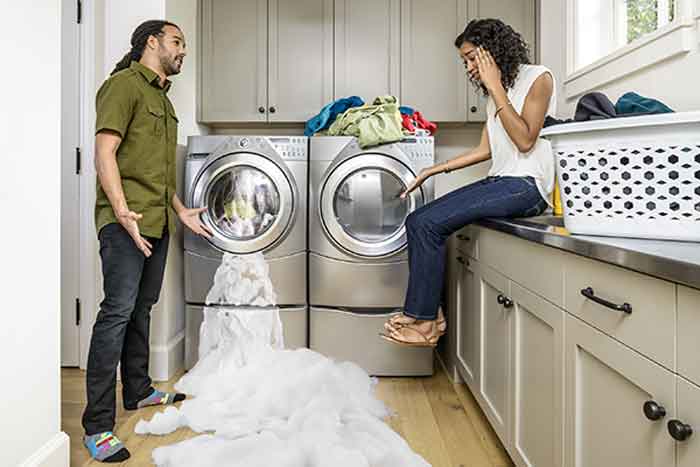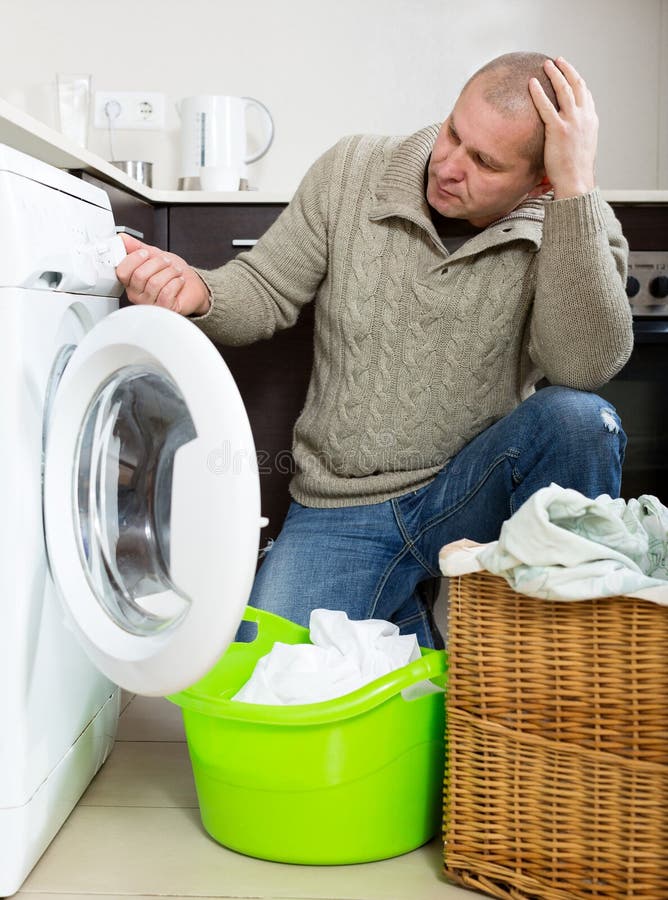Visit The Following Page
Each person seems to have his or her own assumption when it comes to Washing Machine Flooding .

Exactly how you hand those valuable mins after your washing device leaks and also floodings can affect exactly how rapid your residential property gets recovered. Understanding what you have to do and also that to call can conserve you from significant damage. It will likewise aid aid you in applying for homeowners insurance policy coverage. Have a look at these leading suggestions below:.
Switch off the Power.
Turn of the circuit breaker where the washing device is. It is crucial to see to it the washing machine is off. Water is a conductor, and doing this step assures no one deals with electrocution. Besides, you must not use your washer until a professional repairman has inspected it.
Obtain the Standing Water.
As you await the plumber or repair technician to come, you need to take care of the flooding. If your washer is in the basement with extensive flooding, you require a completely submersible pump to secure the water. You can lease or borrow this. However, if it takes place in the middle of the evening, the old pail technique will likewise function. Use several jugs to by hand dispose out the water. It would be best if you did this today, as the longer the water remains, the extra comprehensive the damage.
Call the Pros.
If you think the issue is with your water line, you need to call a qualified plumber. Nonetheless, if you are unsure, call a washer repairman for a fast evaluation. He or she can tell you best what the problem is. It could be a problem with the maker itself or the pipes attaching to the device.
Document the Damages.
Prior to cleaning up this emergency flooding scenario, you should record whatever. Bear in mind, photos, and video clips. It would be best if you had all of this as proof to support your insurance policy cases. Then you can call your home owner's insurance coverage service provider to examine what various other requirements they require to process your demand.
Vacuum Any Kind Of Remaining Water.
Making use of a wet/dry vacuum, remove the rest of the water, as well as draw it from porous products like baseboards, drywall, floor covering, and carpets.
Turn Off Water.
You should switch off the supply of water of the equipment. Whether it overflows for unidentified factors, breaks down in the lower pipelines, or ruptures the primary tube, you will be managing remarkable amounts of water. If the regional supply line to the washing machine does not shut it off, you should switch off the main water shutoff outside your home.
Dry the Area as High As Possible.
After getting the standing water, obtain sponges or old towels to suck out as much water from the floor or carpeting. Keep the windows available to flow the air. You might likewise use electric followers to accelerate the drying out procedure. Remember, water will trigger mildew as well as mold and mildew development which is harmful to your health and wellness. If you feel that the circumstance is way too much to handle, you can also seek water removal services from a restoration company. Your insurance policy case might likewise aid pay for this solution, so just ask.
Remember, a busted washer with leaking pipelines will lead to tragic damages as a result of the huge quantities of water it can unload. Thus, it would help to have your maker as well as water lines checked yearly. You can look for aid from a reputable plumber to replace your supply line pipes. Doing evaluations avoids stressful breakdowns and expensive failures.
MY WASHING MACHINE FLOODED THE HOUSE! WHAT SHOULD I DO?
STOP THE WATER
First things first, turn off the water. You ll want to stop the flooding at its source, which is the washing machine s water supply. Once you ensure the water is turned off, unplug your washing machine.
If there is standing water around the electrical plug, you may want to take an extra precautionary step and turn off the power before unplugging your washer to prevent electrical shock.
CLEAN UP WHAT YOU CAN
Next, you ll want to clean up as much water as you can. Depending on how much your washer flooded this may take a lot of towels, but it is very important in ensuring you don t have lasting washing machine water damage. For a large amount of water, using a wet vacuum and large fans for drying will be most effective.
EMPTY THE MACHINE
Once you ve cleaned up the majority of the water from the overflow, you ll want to remove any items from your washer, along with any leftover water that is still in your machine. This will give a you or a repairman the ability to analyze your machine and determine the cause of the washing machine overflow.
CALL IN THE EXPERTS
Depending on how washing machine-savvy you are, you may be able to determine the cause of the overflow yourself maybe you notice a faulty hose, like we discussed earlier. But if you aren t able to determine why your washing machine flooded, you ll want to get someone in there who can.
FIX ANY WATER DAMAGE
Effects of water damage after a washing machine flood may include damage to surrounding areas, such as your floors, walls, or other close-by machines. And while visual damages might be the most noticeable, you ll want to pay attention to smell as well. A wet-dog type of smell is normal at first and can usually be remedied by opening nearby windows to air-out the area.
However, if the smell lingers for more than three days, that s an indication there is still water somewhere. Even after thoroughly drying the impacted area, water may be hiding in your floors or in the sheetrock in your walls, which can indicate mold. Call in a mold remediation professional to inspect your property for hidden moisture.
WHAT CAUSES WASHING MACHINES TO FLOOD?
Too much laundry soap. When it comes to how much soap you use, be sure to not exceed the recommended amount. Using too much soap can cause build up and clog your washing machine leading to overflow. Too many clothes. If you overload your washer with too many clothes, you may notice your washing machine becoming unbalanced and making awful noises, like a spaceship getting ready to take off. This is an indication that your washer is out of alignment which can lead to a flood. Too weak or old of a hose or other faulty washing machine parts. Washing machines rely on hoses to transport water to and from the washing machine. If one of the hoses becomes weak, faulty, or develops a crack, say hello to a flood. You ll want to ensure your hoses are in good shape and properly connected so no water can leak out. It s also important to check the washing machine draining mechanisms, as well as the door latches and seals. Making sure everything is in tip-top shape and proper working order will help keep your washer from flooding. https://www.servicemasterbyzaba.com/blog/washing-machine-flooded/

I was brought to that editorial on Washing Machine Flooding from an acquaintance on another web address. Be sure to set aside a second to promote this blog entry if you enjoyed it. Thanks for taking the time to read it.
Course Detail